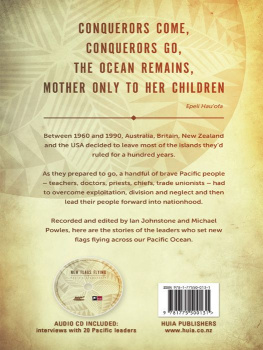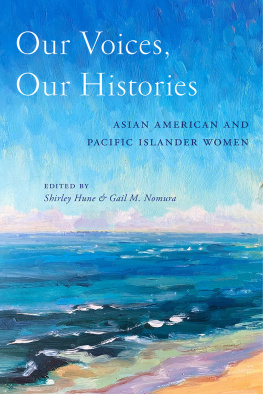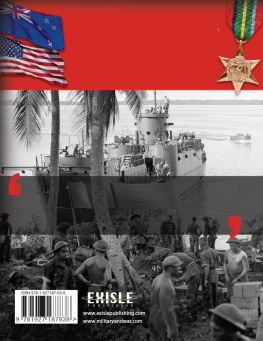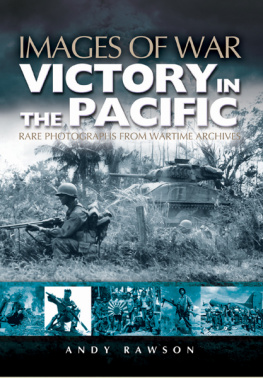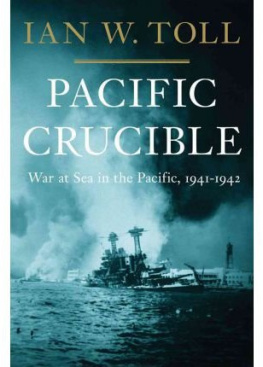



This book is dedicated to Rexs wife, Wanda, for her patience and encouragement during his long hours of securing interviews and editing tape transcriptions thereof It is dedicated also to Jerrys father, B- crew chief Paul Meehl; to Jerrys uncles, Al Hahn, Louis Meehl and Harlan Wall, whose stories from the Pacific he grew up hearing, and another uncle, Bill Durdy, who served in the Pacific but left almost no record of what he did or where he served; and especially to Jerrys wife Maria, not only for her considerable technical contributions, but also for her emotional support, greatly appreciated and highly valued, through projects past, present and future.
PROJECT MANAGER: Susan Costello
EDITOR: Walton Rawls
COPYEDITOR: Marian K. Gordin
PRODUCTION EDITOR: Amber Reed
DESIGNER: Misha Beletsky
COMPOSITOR: Hall Smyth
PRODUCTION MANAGER: Louise Kurtz
Photography copyright 2004 Gerald A. Meehl. Text copyright 2004 Rex Alan Smith and Gerald A. Meehl. Compilation, including selection of text and images, copyright 2004 Abbeville Press. All rights reserved under international copyright conventions. No part of this book may be reproduced or utilized in any form or by any means, electronic or mechanical, including photocopying, recording, or by any information storage and retrieval system, without permission in writing from the publisher. Inquiries should be addressed to Abbeville Press Publishers, Varick Street, New York, NY 10013 . Printed in the United States.
For bulk and premium sales and for text adoption procedures, write to Customer Service Manager, Abbeville Press, Varick Street, New York, NY 10013 or call - -A RTBOOK.
Visit Abbeville Press online at www.abbeville.com.
First E-book edition: August 2011
ISBN -- 7892 - 6010
The print edition of this book is cataloged as follows:
Library of Congress Cataloging-in-Publication Data
Pacific War stories : in the words of those who survived I [edited by] Rex Alan Smith,
Gerald A. Meehl.st ed.
p. cm.
Includes index.
ISBN - 7892 - 0817 - (alk. Paper)
. World War, 1939 - 1945 CampaignsPacific Area.. World War, 1939 - 1945 Personal narratives, American.. Oral history.. United StatesArmed ForcesBiography.. SoldiersUnited StatesBiography. I. Smith, Rex Alan. II. Meehl, Gerald A.
D.P 3344 2004
. 092273 dc
[B] 2004052819
JACKET : The strain of the intense fighting on the island of Peleliu in 1944 is etched on the face of this Marine.
MAP BY: Michael Shibao
PAGE : U.S. troops storm ashore on the Philippine island of Leyte on October, 1944 . This is the view that Fred Saiz and Dave Gutterman had as they landed on these beaches.
PAGES : Guam landing beach with Americans under fire crouching on the beach.
We hope you enjoy this book from Abbeville Press. To write to the author or see our other titles, click here. (This link will open your devices web browser.)
TABLE OF CONTENTS
A man in his eighties sits down at the table and carefully spreads out in front of him ten or so small black-and-white photographs. They have all now taken on a kind of amber hue, after some sixty-odd years, but their images are still sharp and clear. All the photos picture very young men, teenagers clowning for the camera, hats at jaunty angles, on beaches, in front of tents, palm trees always in the background. Im this fellow here. He points to one of the smiling lads in the photo closest to him. You look up from the old photo to the face of this amiable, distinguished, Pacific war veteran, and its difficult to imagine that they are the same person.
Then, as arranged, he starts to tell his story, first what made him enlist in 1942 , then the crazy things that happened while training Stateside for war, then being crammed into a converted Hawaiian cruise ship with thousands of other teenagers, crossing the Pacific with a sense of high adventure, and then further stories of wild times on leave in wartime Honolulu. Then he finds himself on another ship, this time going to invade an enemy island he has never heard of, an island few people even remember today. Then, in an uninterrupted stream, there are stories of terror, violence, and death, interspersed with bizarre and even humorous events. You marvel at how easily he can switch his narrative from a truly gruesome experience to one that is so funny he has trouble getting it out between fits of laughter. Ultimately he tells about hearing that atomic bombs had been dropped on Japan, and he confides that he felt a profound sense of relief when he learned that the war in the Pacific was finally over, that he would indeed survive the war. Then one last story, about another ocean voyage, on another ship, but this one is taking him home.
He stops for a moment, and you think the stories have ended, but it is just a pause. Perhaps unexpectedly, he has somehow tapped deep into a well-secured vault of Pacific war memories, and now they begin to resurface one after another. His face brightens again and again as more images of things that happened come into focus. And I remember one timeand, you know, I dont think I ever told my family this story and he launches into a humorous, R-rated experience he had in Honolulu. Then another island combat anecdote. Then a story of a strange thing that happened to a friend of his on one of the islands. He will later say hes told you stories he hasnt related to anyone for a long time, and some of them hes never told since the war.
When they first came back, most Pacific war veterans didnt seem to talk much about what happened to them in the islands. They needed first to get on with their lives, and of course they knew that many other veterans had similar stories they could tell. What a vet had personally done, as just one individual embedded somewhere in the Pacific islands, might not have seemed all that spectacular, unique, or even interesting to others, at the time. Sometimes when tempted to tell their stories, the vets could see family eyes roll and hear a chorus of, There goes dad again with his old war stories. But even with an interested audience, Pacific war veterans would seldom tell anyone about the bad things that happened. They figured war was tough for everybody in one way or another, and nobody would want to hear about the horrible things anyhow. However, half a century later, it dawns on some veterans that they actually did have a part in world history, and that what they did then was even fairly interesting. Since more people appear ready to give them an ear, many are now willing to share their experiences, willing to acknowledge that they did play a role, however small, in the outcome of the Pacific war.
Listening to a Pacific war veteran tell his stories is not a relaxing experience. You strain to imagine the scenes he is recalling, and you struggle to keep up, in your minds eye, with the images he describes. But as you begin to relive with him his varied experiences, he is no longer an eighty-two-year-old man sitting across from you but a young man stationed on a South Sea island long ago, recounting events with an immediacy that also transports the listener to the Pacific. Its a form of time travel, and you are there on exotic Pacific islands, living hilarious events that happened on leave in Honolulu, experiencing horrific scenes of violence and death, feeling the discomforts of rain, heat, mosquitoes, and the oppressive humidity of the tropics, seeing stunning beauty in lush, island scenery, contemplating all those spectacular sunsets, enduring the boredom, waiting for something big to happen even on rear area islands.
Next page

